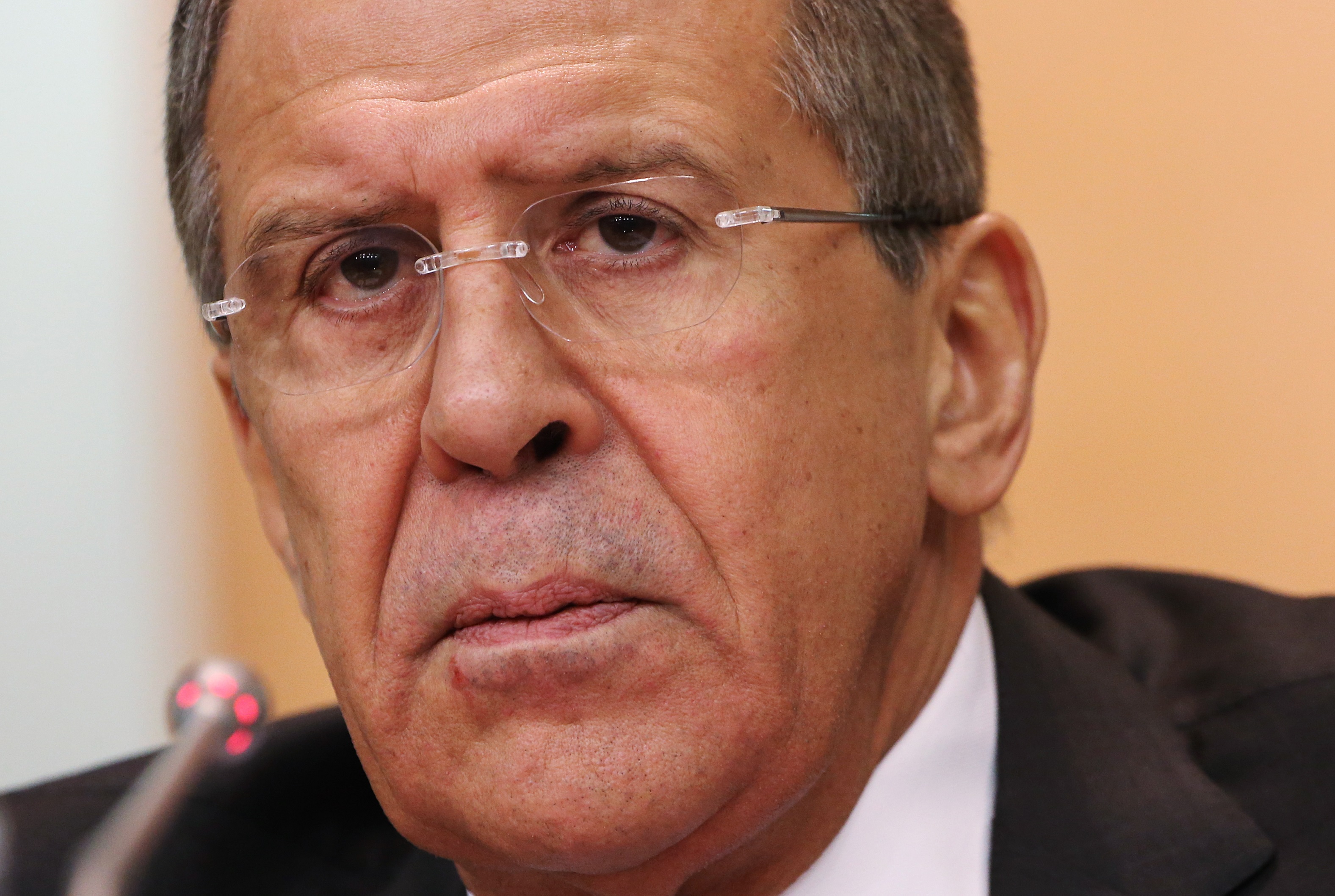ID :
356636
Mon, 02/09/2015 - 10:18
Auther :
Shortlink :
https://www.oananews.org//node/356636
The shortlink copeid
Russia to keep pushing for establishment of peace in Ukraine - Lavrov

MUNICH, February 7. /TASS/. Russia will keep pushing for establishment of peace in Ukraine and is speaking for termination of combat activities and pullout of armaments, Russian Foreign Minister Sergey Lavrov said Saturday speaking at the Munich Security Conference.
"Russia will keep pushing for establishment of peace. We are consistently speaking for termination of hostilities, withdrawal of heavy armaments, the start of direct talks of Kiev with Donetsk and Lugansk on specific ways of restoring the common economic, social and political space within the framework of Ukraine’s territorial integrity," Lavrov said.
"That’s what numerous initiatives of Vladimir Putin within the framework of the ‘Normandy format’ were dedicated to. They made it possible to launch the Minsk process, our follow-up efforts on its development, including yesterday’s talks in the Kremlin between the leaders of Russia, Germany and France," he said.
Lavrov said the talks will continue.
"There are all chances to achieve a result and agree recommendations that will allow the sides to really undo that conflict knot," he said.
Developments in Ukraine
Deep crisis embraced Ukraine at the end of 2013, when then-President Viktor Yanukovich suspended the signing of an association agreement with the European Union to study the deal more thoroughly. The move triggered mass riots that eventually led to a coup in February 2014.
The coup that brought chaos to Ukraine prompted the Republic of Crimea and the city of Sevastopol with a special status to refuse to recognize the legitimacy of coup-imposed authorities, hold a referendum and secede from Ukraine to reunify with Russia in mid-March 2014 after some 60 years as part of Ukraine.
After that, mass protests erupted in Ukraine’s southeast, where local residents, apparently inspired by Crimea's example, did not recognize the coup-imposed authorities either, formed militias and started fighting for their rights.
Despite Moscow’s repeated statements that the Crimean referendum on secession from Ukraine was in line with the international law and the UN Charter and in conformity with the precedent set by Kosovo’s secession from Serbia in 2008, the West and Kiev have refused to recognize the legality of Crimea’s reunification with Russia.
Thousands of people have lost their lives and hundreds of thousands have fled Ukraine’s southeast as a result of clashes between Ukrainian troops and local militias in the Donetsk and Lugansk regions during Kiev’s military operation, conducted since mid-April 2014, to regain control over parts of the breakaway territories, which call themselves the Donetsk and Lugansk People’s republics, according to UN data.
Businessman and politician Pyotr Poroshenko won the May 25, 2014 early presidential election in Ukraine. Poroshenko had funded anti-government protests that led to the February 2014 coup. The association agreement with the EU was eventually signed on June 27, 2014 under the new Western-leaning billionaire president.
A ceasefire was agreed upon at talks between the parties to the Ukrainian conflict mediated by the Organization for Security and Cooperation in Europe (OSCE) on September 5, 2014 in Belarusian capital Minsk two days after Russian President Vladimir Putin proposed his plan to settle the situation in the east of Ukraine.
Numerous violations of the ceasefire, which took effect the same day, have been reported since.
On September 16, 2014, Ukraine’s parliament adopted the law on a special self-rule status for certain districts in the Donetsk and Lugansk regions for three years. The law took effect October 18, 2014 but was then repealed by Kiev.
A memorandum was adopted on September 19, 2014 in Minsk by the Trilateral Contact Group on Ukraine comprising representatives of Ukraine, Russia and the OSCE. The document outlined the parameters for the implementation of commitments on the ceasefire in Ukraine laid down in the Minsk Protocol of September 5, 2014.
The nine-point memorandum in particular envisioned a ban on the use of all armaments and withdrawal of weapons with the calibers of over 100 millimeters to a distance of 15 kilometers from the contact line from each side. The OSCE was tasked with controlling the implementation of memorandum provisions.
A "day of silence" in eastern Ukraine began at 09:00 a.m. local time (0700 GMT) on December 9, 2014. It was seen as another attempt by both parties to the intra-Ukrainian conflict to put an end to hostilities. Both Kiev and the self-proclaimed republics voiced the necessity to start withdrawal of heavy armaments, swap prisoners and demilitarize the region.
The situation in the region deteriorated when a passenger bus bound from Donetsk to Zlatoustovka was shelled on January 13. Twelve civilians were killed and 16 wounded.
Read more





